Every November, the quiet desert town of Pushkar comes alive with colors, music, and thousands of camels and cattle brought in by locals from nearby villages. Dressed in vibrant turbans and sarees, people gather for days of trading, rituals, and celebration. The air fills with the scent of street food and the sound of folk songs echoing through the fairgrounds. Pushkar Camel Fair is more than just an event; it’s a shared experience of culture, devotion, and joy.
Rajasthan is often celebrated for its majestic forts and golden deserts, but the Pushkar Camel Fair offers a deeper, more vibrant glimpse into its soul.
Held every year between October and November in the sacred town of Pushkar, this centuries-old fair is far more than a livestock market. It’s a cultural explosion of color, music, tradition, and spirited trade, where the rhythm of camel bells mingles with folk melodies and festive cheer. Pushkar Camel Fair invites you to witness rural India at its most enchanting, a rare experience that captures the true spirit of Rajasthan like nothing else.
Here is everything you need to know about Pushkar Camel Festival.
Also Explore: Popular Tour Packages for Rajasthan
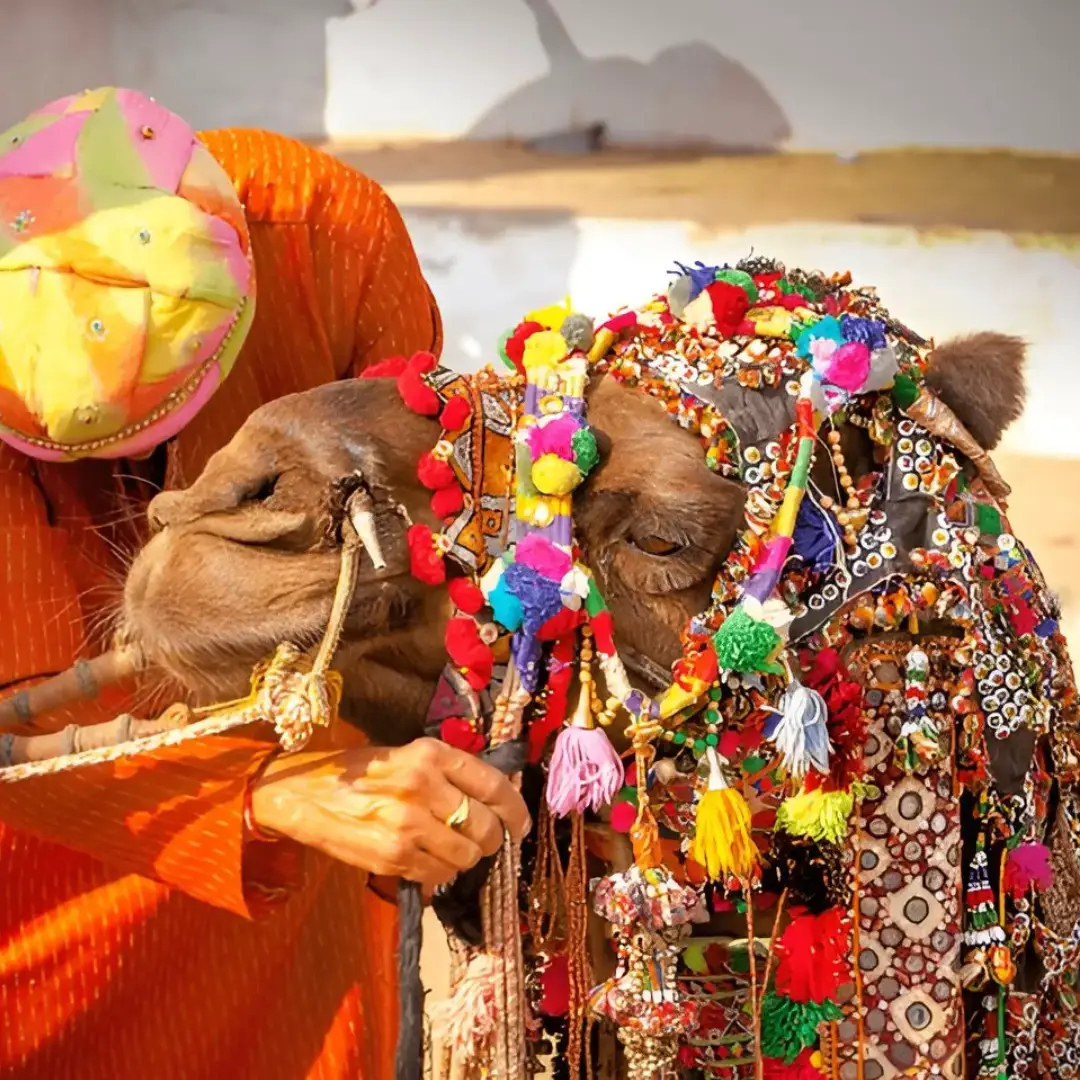
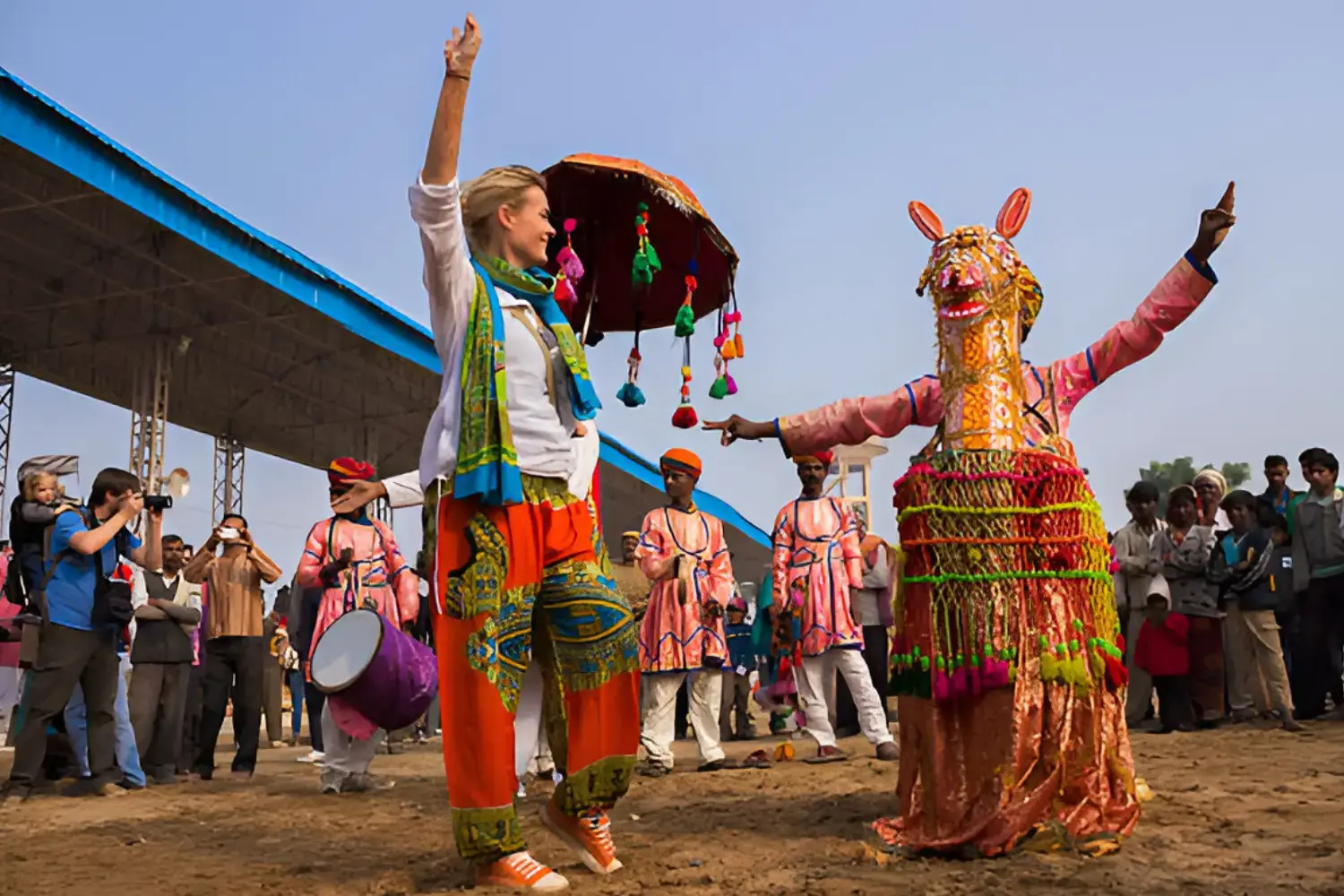
The Pushkar Camel Fair in 2025 promises a week of vibrant festivities, falling in sync with the auspicious Hindu lunar month of Kartik.
The Pushkar Camel Fair 2025 is scheduled to commence on Thursday, October 30th, and will conclude on Friday, November 5th. This seven-day extravaganza is a truly immersive experience, peaking during the full moon (Kartik Purnima), which is considered an incredibly holy time for pilgrims to take a dip in the sacred Pushkar Lake. While the official dates span a week, the trading of livestock often begins a few days prior, adding to the bustling atmosphere.
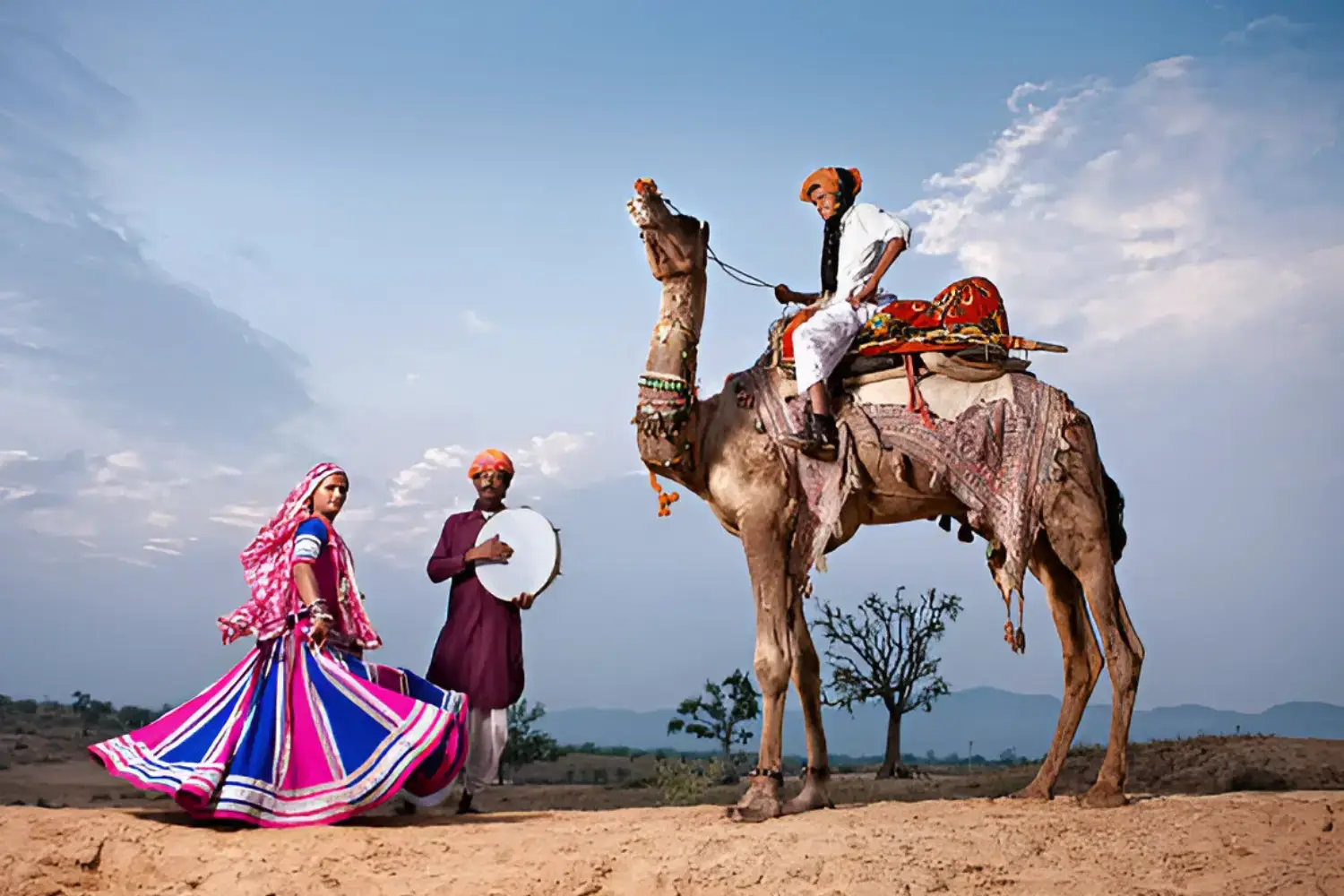
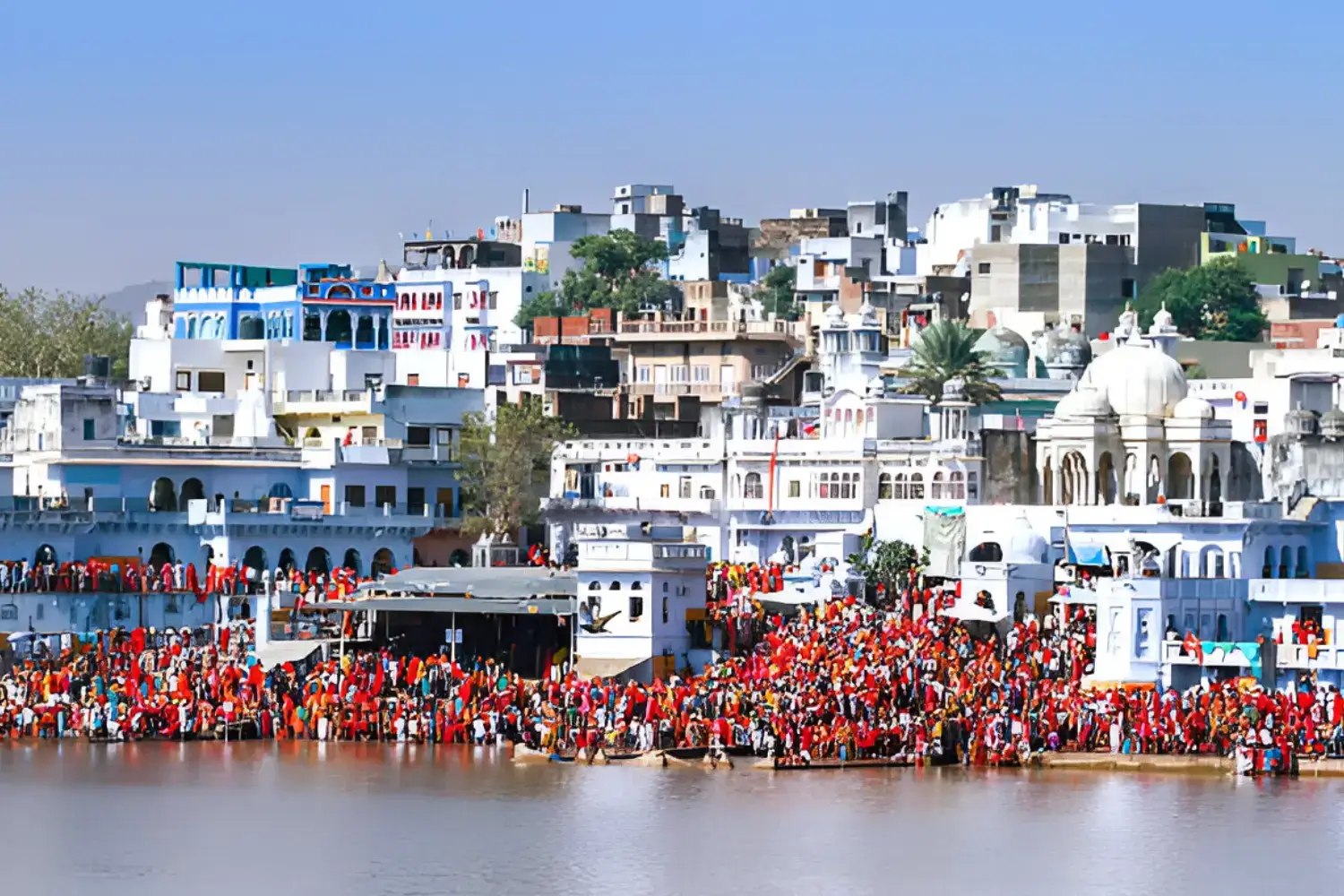
The Pushkar Camel Fair, locally known as Kartik Mela or Pushkar ka Mela, boasts a rich history spanning centuries. Its origins are deeply intertwined with religious significance. Legend has it that Lord Brahma, the creator deity in Hinduism, dropped a lotus flower while battling with a demon, and the flower fell at three spots, forming the sacred Pushkar Lake. Later, he performed a grand Yajna (ritual sacrifice) at this very site. This event is believed to have consecrated the lake, making it one of the most revered pilgrimage sites for Hindus.
The fair initially began as a gathering for local cattle and camel traders to buy and sell their livestock, coinciding with the auspicious Kartik Purnima. This period was chosen because pilgrims would flock to Pushkar Lake for a holy dip, believing it would cleanse them of sins and bring salvation. This annual congregation of devotees and traders naturally evolved into the grand fair we see today. Over time, the fair expanded beyond livestock trading to include cultural performances, competitions, and a bustling marketplace, showcasing the vibrant traditions and rural life of Rajasthan. It's a testament to the enduring faith and cultural richness of the region, where commerce, devotion, and festivities merge into a unique tapestry.
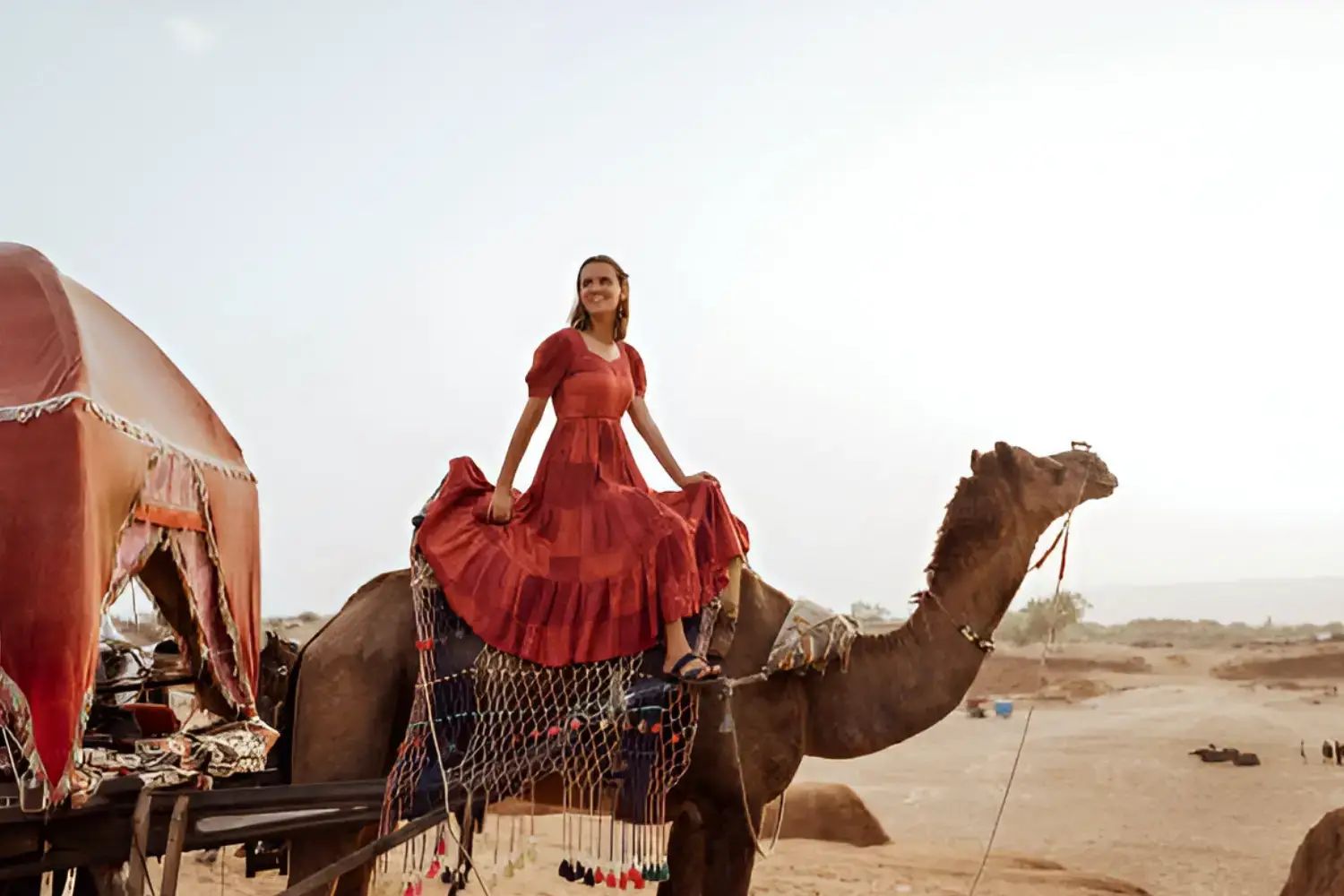
The Pushkar Fair offers a plethora of activities to immerse yourself in:
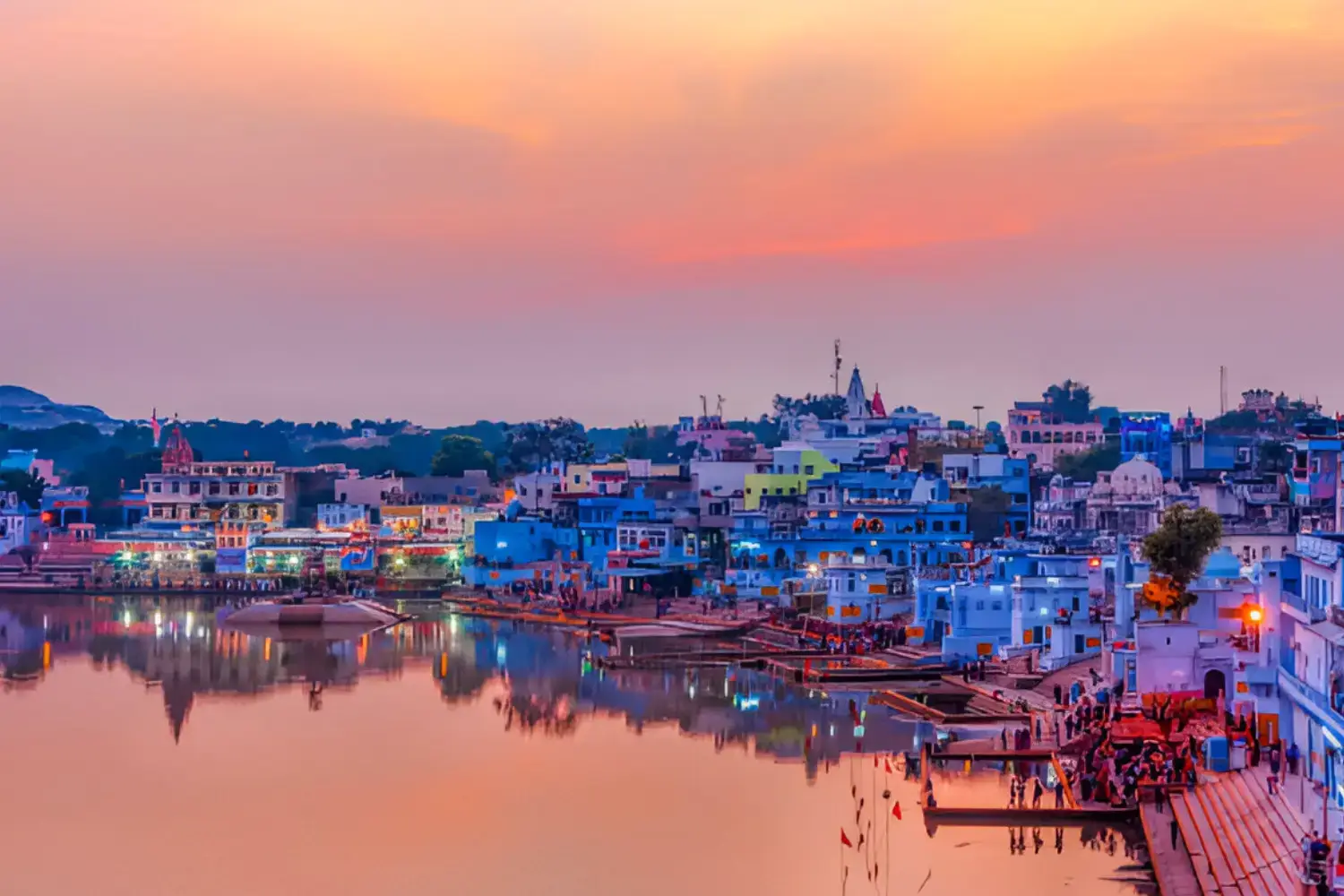
While the fair itself is a major attraction, Pushkar and its surroundings offer several other captivating sites:
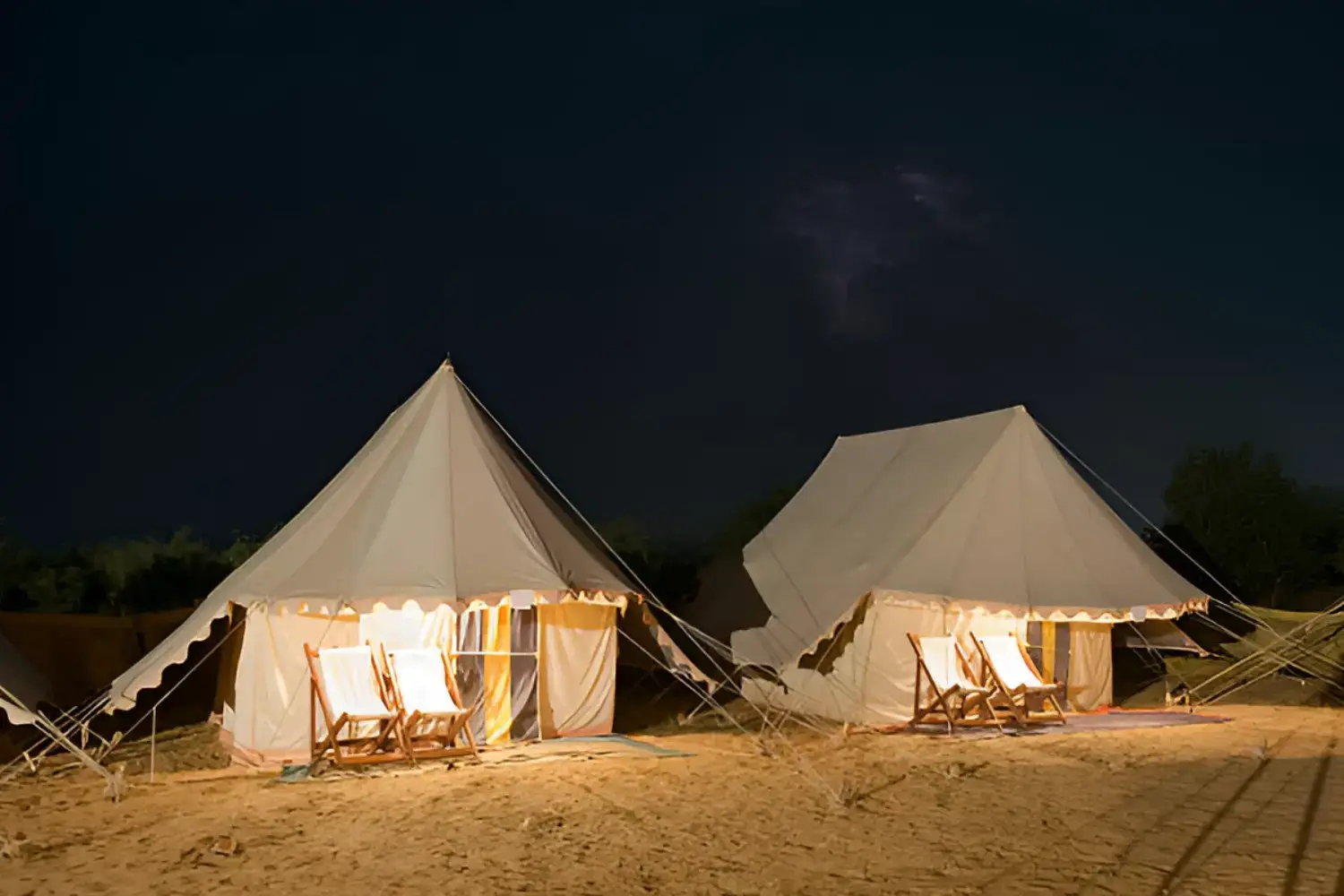
During the Pushkar Camel Fair, accommodation options range from basic to luxurious, catering to all budgets. It's highly recommended to book well in advance, as the town gets incredibly crowded.
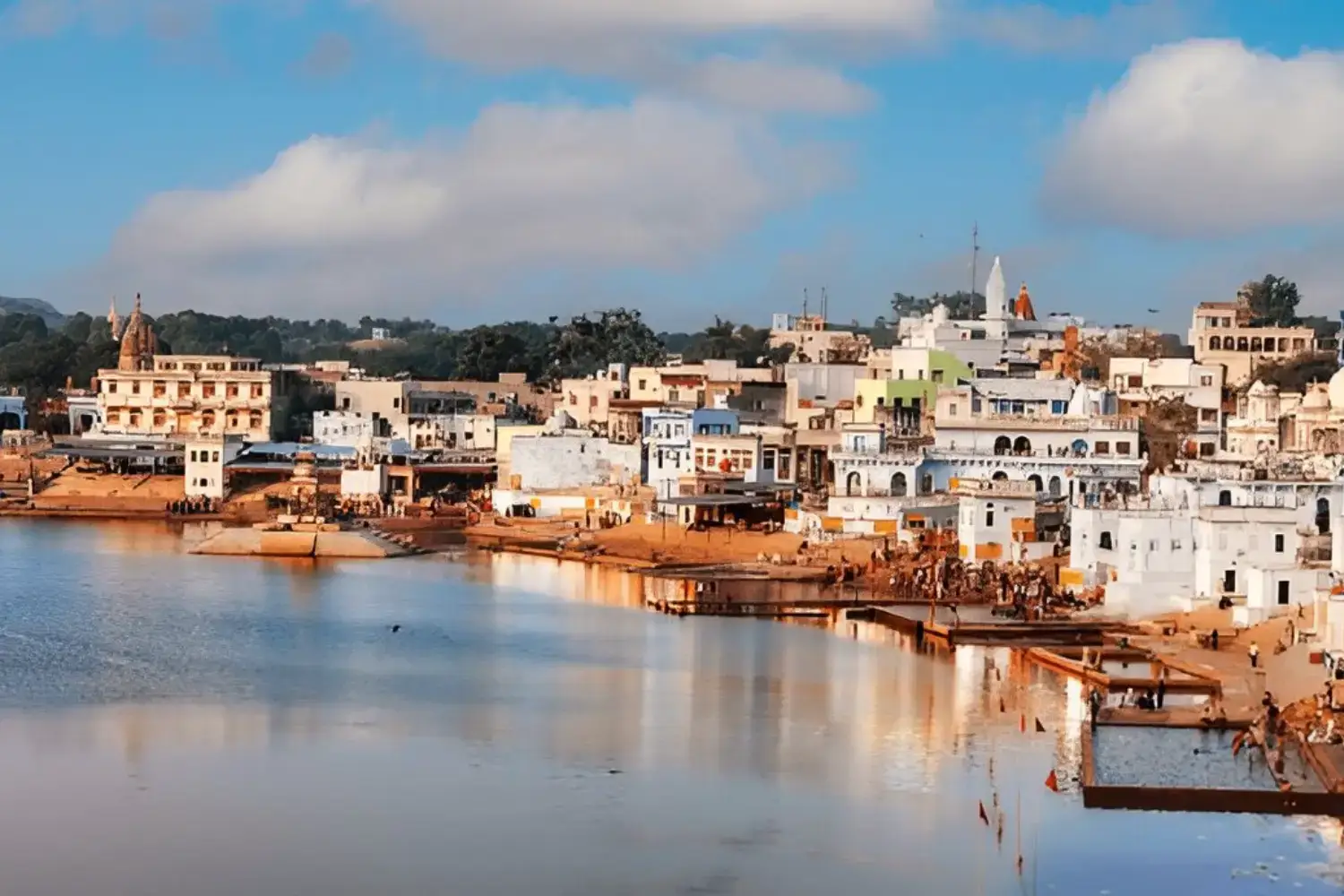
Pushkar is well-connected, making it accessible from major Indian cities:
By Air:
The nearest airport to Pushkar is Jaipur International Airport (JAI), approximately 140 km away. Jaipur is well-connected to major Indian cities like Delhi, Mumbai, Kolkata, Bangalore, and Chennai with regular flights. From Jaipur, you can hire a taxi or take a bus to Pushkar, which is a scenic 3-4-hour drive.
By Train:
Pushkar does not have its own railway station. The nearest major railway station is Ajmer Junction (AII), located about 15 km from Pushkar. Ajmer is a significant railway hub with excellent connectivity to major cities across India.
By Road:
Pushkar is well-connected by a network of national and state highways.




